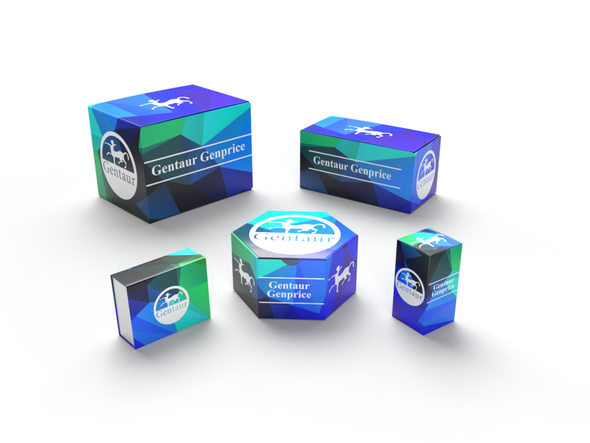Description
DHH Antibody | 60-360 | Gentaur UK, US & Europe Distribution
Host: Rabbit
Reactivity: Human
Homology: Predicted species reactivity based on immunogen sequence: Mouse
Immunogen: This DHH antibody is generated from rabbits immunized with a KLH conjugated synthetic peptide between 195-223 amino acids from the Central region of human DHH.
Research Area: Signal Transduction
Tested Application: WB
Application: For WB starting dilution is: 1:1000
Specificiy: N/A
Positive Control 1: N/A
Positive Control 2: N/A
Positive Control 3: N/A
Positive Control 4: N/A
Positive Control 5: N/A
Positive Control 6: N/A
Molecular Weight: 44 kDa
Validation: N/A
Isoform: N/A
Purification: This antibody is purified through a protein A column, followed by peptide affinity purification.
Clonality: Polyclonal
Clone: N/A
Isotype: Rabbit Ig
Conjugate: Unconjugated
Physical State: Liquid
Buffer: Supplied in PBS with 0.09% (W/V) sodium azide.
Concentration: batch dependent
Storage Condition: Store at 4˚C for three months and -20˚C, stable for up to one year. As with all antibodies care should be taken to avoid repeated freeze thaw cycles. Antibodies should not be exposed to prolonged high temperatures.
Alternate Name: Desert hedgehog protein, DHH, HHG-3, Desert hedgehog protein N-product, Desert hedgehog protein C-product, DHH
User Note: Optimal dilutions for each application to be determined by the researcher.
BACKGROUND: This gene encodes a member of the hedgehog family. The hedgehog gene family encodes signaling molecules that play an important role in regulating morphogenesis. This protein is predicted to be made as a precursor that is autocatalytically cleaved; the N-terminal portion is soluble and contains the signalling activity while the C-terminal portion is involved in precursor processing. More importantly, the C-terminal product covalently attaches a cholesterol moiety to the N-terminal product, restricting the N-terminal product to the cell surface and preventing it from freely diffusing throughout the organism. Defects in this protein have been associated with partial gonadal dysgenesis (PGD) accompanied by minifascicular polyneuropathy. This protein may be involved in both male gonadal differentiation and perineurial development.






![DHH Antibody (Center) [AMM08615G] DHH Antibody (Center) [AMM08615G]](https://cdn11.bigcommerce.com/s-1rdwiq712m/images/stencil/590x590/products/57153/57457/gentaur-genprice__26005.1661610467__29809.1661628092__75433.1661676199__77988.1661684280__64362.1661692443__36019.1661853759.png?c=1)